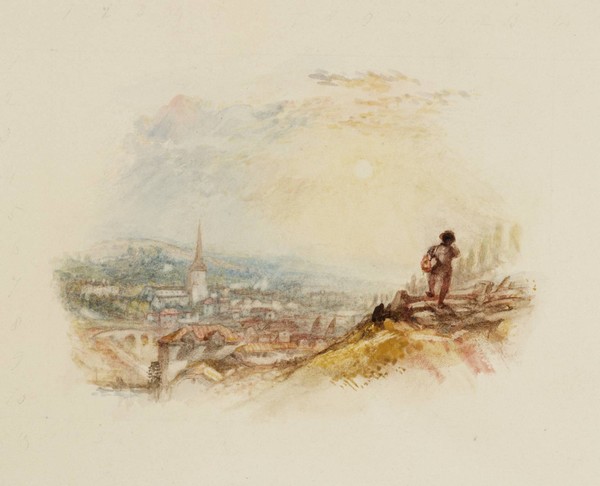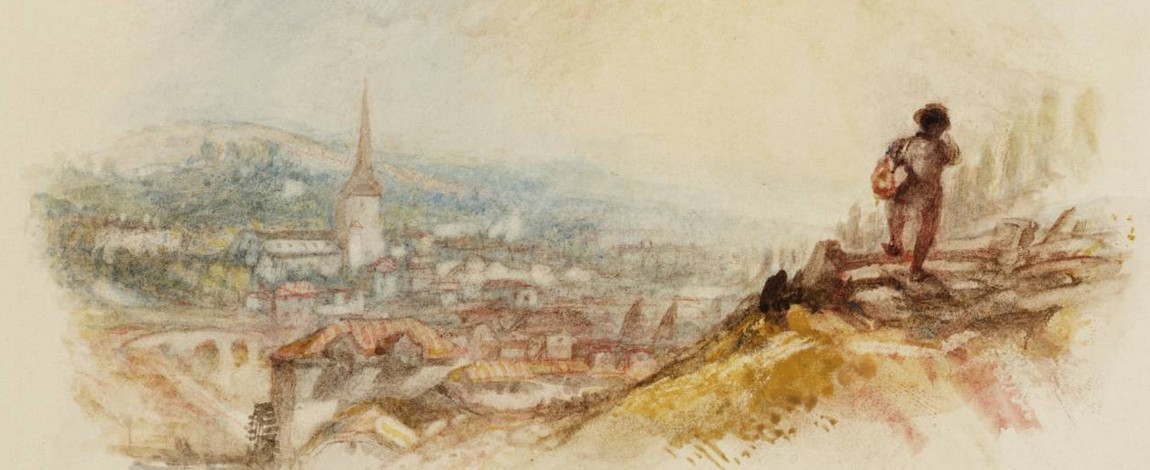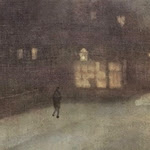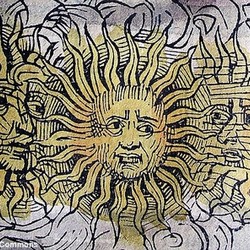
The heat is here! I am grateful that this year it arrives a bit later, but I still find it annoying, regardless. But that is summer in Barcelona, so what can you do? Among the side effects that the heat causes me, as regular readers know, are the musings about Lieder. This week's musings have been around for a long time; one day or another they had to arrive at Liederabend, and summer has done the rest.
Have you ever wonder who Winterreise's wanderer is? Where does he come from? You may be thinking that it doesn't matter at all, and you are correct; they are just musings. But, still, have you ever wonder who this stranger really is? The first two songs, Gute Nacht and Die Wetterfahne, tell us the few concrete things we know about him. In spring, he came to a house in an undetermined town. In that area, a young woman lives, and he falls in love with her. She corresponds with him, and the mother even talks about marriage. The father has other plans for his daughter, however: marrying her with a good catch. And now, in winter, he furtively leaves at night, before they do it away from home.
From there, the musings begin: what position should have someone who came to a house to live with the family in the early 19th century? The house could be a farmhouse or a mill, such as the one in Die schöne Müllerin, and the man would have arrived to work there. However, it does not seem to be the best hypothesis because he says that when he leaves he passes in front of her chamber, and most likely the dependencies of the workers would be separated from those of the family. In any case, I believe we can conclude that he is not an apprentice, similar to the young miller, as our protagonist is more mature.
Could it be possible that the father was a musician, or a scholar, and the young man had gone to study with him? It was quite common in these cases that the student paid included the stay in the teacher's house. For example: When Robert Schumann went to Leipzig in 1830 to study with Friedrich Wieck, he stayed at his home with his family. Clara, the daughter of the house, was only eleven years old, but if Herr Wieck had known what would happen, he might have done things differently. The hypothesis that the wanderer is a student of music is reinforced by another hypothesis, which interprets the last song of the cycle, Der Leiermann, as a renunciation of everything other than art. Or, in a variant of the hypothesis, that art is his only refuge.
More options: the young man isn't here to learn, he's here to teach. I would say that he arrives in a wealthy house, and from his reflections throughout the cycle, we can conclude that he is an educated person. Imagine that there are children and our young man has come as a tutor. If so, he would live with the family and maybe even socialize with them sometimes. And he wouldn't be the best catch for the daughter of the house if the only thing to choose was money.
I still have one more option: the stranger is a relative, like a nephew. He has changed cities to study or work there, and where would he be better than with his relatives? Our man would be considered one more member of the family, which would make his betrayal even more offensive (“we welcome you as a son!!”) As the music student could be Schumann, the nephew could be Heinrich Heine. Heine left Düsseldorf to go to work in Hamburg, in the company of his uncle Salomon. And he fell in love with his cousin Amalie, who, apparently following instructions from his father, married another man, which was a good catch. Of course, I'm not suggesting that the wanderer is Heine, or that Wilhelm Müller was inspired by his experiences, or anything similar. It's hot, but not so hot at all. It is only that the story of Heine could also be that of our stranger. Fortunately, it appears that the poet did not take his disappointment as seriously as Müller's character, according to what is reflected in the Buch der Lieder.
Could there be more reasons as to why our man, a stranger, shared a home with his beloved? Tell us if you have any more ideas!
To illustrate this article, we will listen to the third Lied of the cycle, Gefrorne Tränen [Frozen drops]. The young man is still very close to his former home; in the previous song, he mentions the weather vane on the roof, and it will not be until the fifth song, Der Lindenbaum, that he will leave the area. In Gefrorne Tränen, the wound is still very recent, and the pain is very alive. The tears sprout and freeze on the cheeks without he realizes he is crying. And the music tells us that it calmly, after the rage of Die Wetterfahne.
We're listening to Peter Anders and Michael Raucheisen's interpretation. It was recorded in Berlin on 23 January, 2 March, and 13 March 1945. The Soviet army was at the gates of the city and there were anti-aircraft alarms. They didn't repeat any sounds, even if they made mistakes because they didn't know if they could finish recording. Art in the midst of chaos.
Gefrorne Tropfen fallen
Von meinen Wangen ab:
Ob es mir denn entgangen,
Daß ich geweinet hab’?
Ei Tränen, meine Tränen,
Und seid ihr gar so lau,
Daß ihr erstarrt zu Eise,
Wie kühler Morgentau?
Und dringt doch aus der Quelle
Der Brust so glühend heiß,
Als wolltet ihr zerschmelzen
Des ganzen Winters Eis.
















